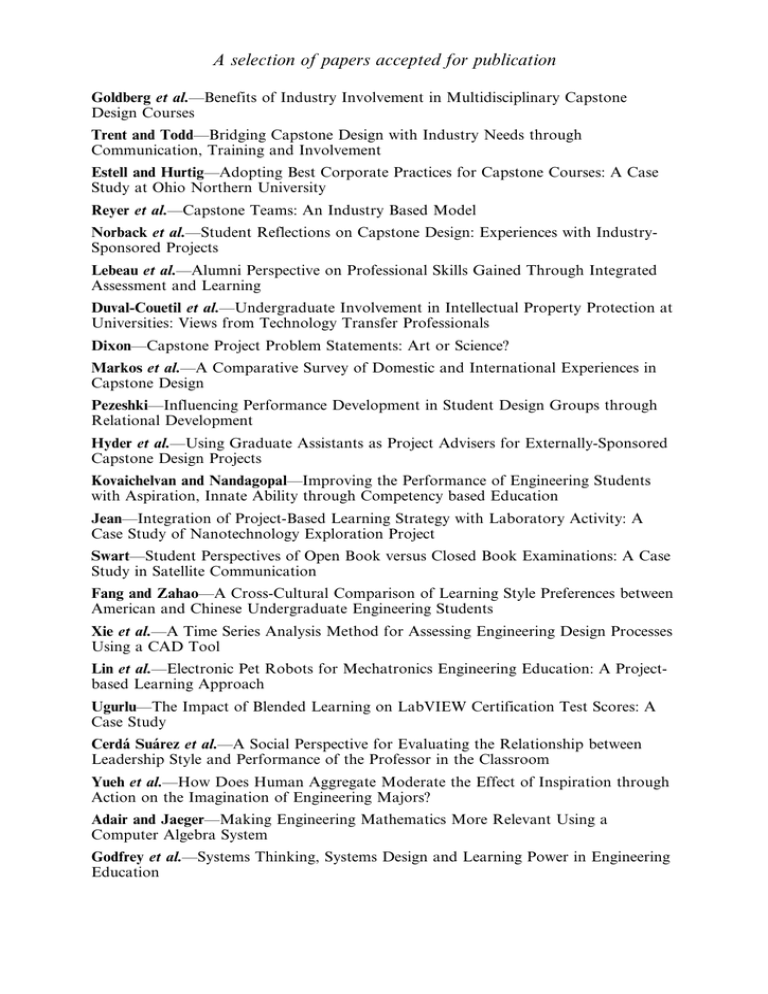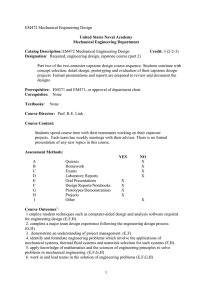A selection of papers accepted for publication
advertisement

A selection of papers accepted for publication Goldberg et al.—Benefits of Industry Involvement in Multidisciplinary Capstone Design Courses Trent and Todd—Bridging Capstone Design with Industry Needs through Communication, Training and Involvement Estell and Hurtig—Adopting Best Corporate Practices for Capstone Courses: A Case Study at Ohio Northern University Reyer et al.—Capstone Teams: An Industry Based Model Norback et al.—Student Reflections on Capstone Design: Experiences with IndustrySponsored Projects Lebeau et al.—Alumni Perspective on Professional Skills Gained Through Integrated Assessment and Learning Duval-Couetil et al.—Undergraduate Involvement in Intellectual Property Protection at Universities: Views from Technology Transfer Professionals Dixon—Capstone Project Problem Statements: Art or Science? Markos et al.—A Comparative Survey of Domestic and International Experiences in Capstone Design Pezeshki—Influencing Performance Development in Student Design Groups through Relational Development Hyder et al.—Using Graduate Assistants as Project Advisers for Externally-Sponsored Capstone Design Projects Kovaichelvan and Nandagopal—Improving the Performance of Engineering Students with Aspiration, Innate Ability through Competency based Education Jean—Integration of Project-Based Learning Strategy with Laboratory Activity: A Case Study of Nanotechnology Exploration Project Swart—Student Perspectives of Open Book versus Closed Book Examinations: A Case Study in Satellite Communication Fang and Zahao—A Cross-Cultural Comparison of Learning Style Preferences between American and Chinese Undergraduate Engineering Students Xie et al.—A Time Series Analysis Method for Assessing Engineering Design Processes Using a CAD Tool Lin et al.—Electronic Pet Robots for Mechatronics Engineering Education: A Projectbased Learning Approach Ugurlu—The Impact of Blended Learning on LabVIEW Certification Test Scores: A Case Study Cerdá Suárez et al.—A Social Perspective for Evaluating the Relationship between Leadership Style and Performance of the Professor in the Classroom Yueh et al.—How Does Human Aggregate Moderate the Effect of Inspiration through Action on the Imagination of Engineering Majors? Adair and Jaeger—Making Engineering Mathematics More Relevant Using a Computer Algebra System Godfrey et al.—Systems Thinking, Systems Design and Learning Power in Engineering Education


